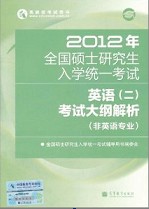 Part B
Part B
Directions:
The following paragraph are given in a wrong order. For Questions 41-45, you are required to reorganize these paragraphs into a coherent text by choosing from the list A-G to filling them into the numbered boxes. Paragraphs E and G have been correctly placed. Mark your answers on ANSWER SHEET 1. (10 points)
[A] No disciplines have seized on professionalism with as much enthusiasm as the humanities. You can, Mr Menand points out, became a lawyer in three years and a medical doctor in four. But the regular time it takes to get a doctoral degree in the humanities is nine years. Not surprisingly, up to half of all doctoral students in English drop out before getting their degrees.
[B] His concern is mainly with the humanities: Literature, languages, philosophy and so on. These are disciplines that are going out of style: 22% of American college
graduates now major in business compared with only 2% in history and 4% in English. However, many leading American universities want their undergraduates to have a grounding in the basic canon of ideas that every educated person should posses. But most find it difficult to agree on what a “general education” should look like. At Harvard, Mr Menand notes, “the great books are read because they have been read”-they form a sort of social glue.
[C] Equally unsurprisingly, only about half end up with professorships for which they entered graduate school. There are simply too few posts. This is partly because universities continue to produce ever more PhDs. But fewer students want to study humanities subjects: English departments awarded more bachelor’s degrees in 1970-71 than they did 20 years later. Fewer students requires fewer teachers. So, at the end of a decade of theses-writing, many humanities students leave the profession to do something for which they have not been trained.
[D] One reason why it is hard to design and teach such courses is that they can cut across the insistence by top American universities that liberal-arts educations and professional education should be kept separate, taught in different schools. Many students experience both varieties. Although more than half of Harvard undergraduates end up in law, medicine or business, future doctors and lawyers must study a non-specialist liberal-arts degree before embarking on a professional qualification.
[E] Besides professionalizing the professions by this separation, top American universities have professionalised the professor. The growth in public money for academic research has speeded the process: federal research grants rose fourfold between 1960and 1990, but faculty teaching hours fell by half as research took its toll. Professionalism has turned the acquisition of a doctoral degree into a prerequisite for a successful academic career: as late as 1969a third of American professors did not possess one. But the key idea behind professionalisation, argues Mr Menand, is that “the knowledge and skills needed for a particular specialization are transmissible but not transferable.”So disciplines acquire a monopoly not just over the production of knowledge, but also over the production of the producers of knowledge.
[F] The key to reforming higher education, concludes Mr Menand, is to alter the way in which “the producers of knowledge are produced.”Otherwise, academics will continue to think dangerously alike, increasingly detached from the societies which they study, investigate and criticize.”Academic inquiry, at least in some fields, may need to become less exclusionary and more holistic.”Yet quite how that happens, Mr Menand dose not say.
[G] The subtle and intelligent little book The Marketplace of Ideas: Reform and Resistance in the American University should be read by every student thinking of applying to take a doctoral degree. They may then decide to go elsewhere. For something curious has been happening in American Universities, and Louis Menand, a professor of English at Harvard University, captured it skillfully.

Part C
Directions:
Read the following text carefully and then translate the underlined segments into Chinese. Your translation should be written carefully on ANSWER SHEET 2. (10 points)
With its theme that “Mind is the master weaver,” creating our inner character and outer circumstances, the book As a Man Thinking by James Allen is an in-depth exploration of the central idea of self-help writing.
(46) Allen’s contribution was to take an assumption we all share-that because we are not robots we therefore control our thoughts-and reveal its erroneous nature.Because most of us believe that mind is separate from matter, we think that thoughts can be hidden and made powerless; this allows us to think one way and act another. However, Allen believed that the unconscious mind generates as much action as the conscious mind, and (47) while we may be able to sustain the illusion of control















